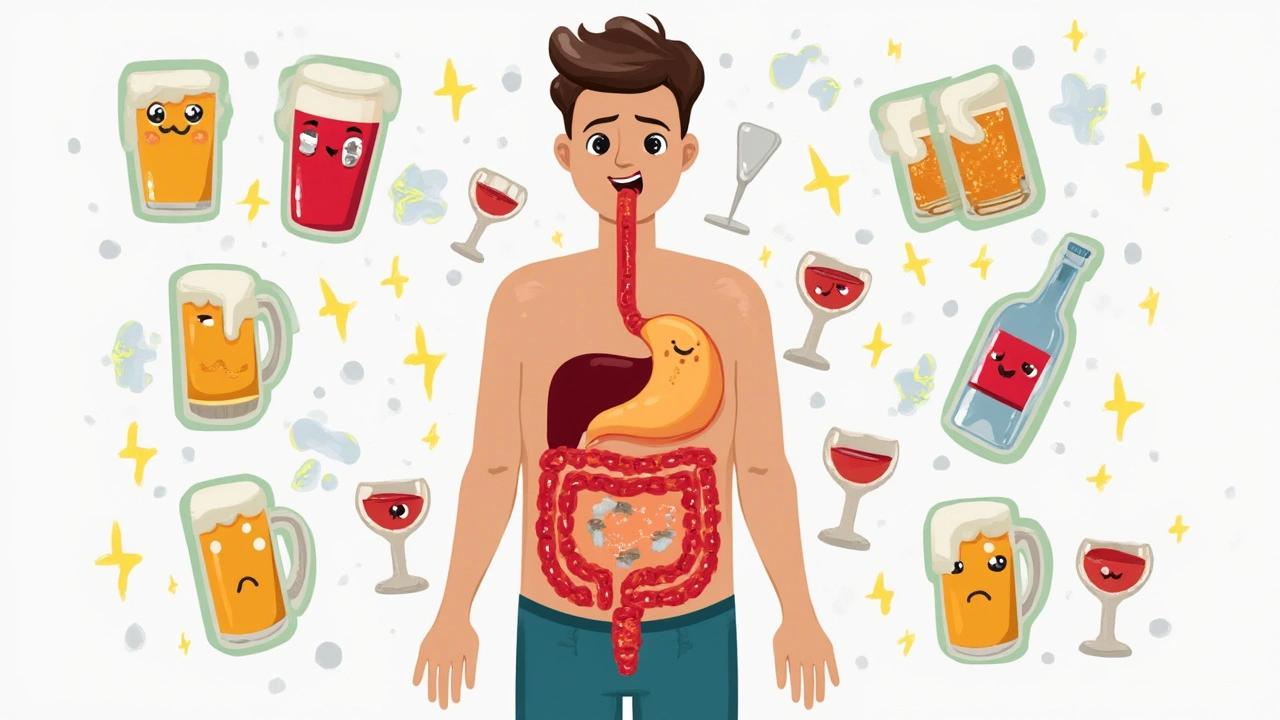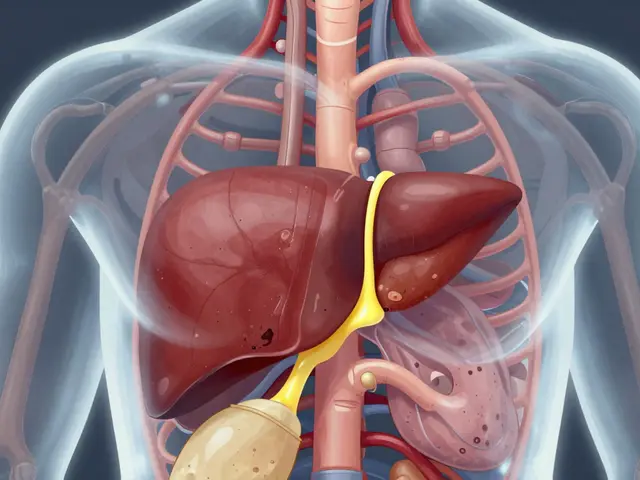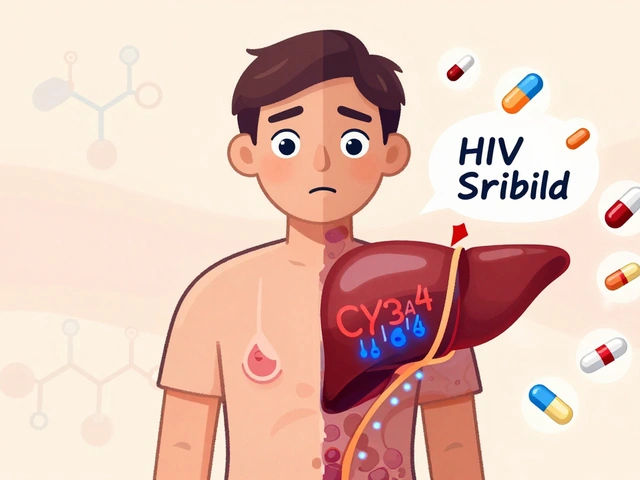Digestion Guides & Tips – Simple Answers for Your Gut
If your stomach feels off, you’re not alone. Digestion is the process that turns food into energy, but it can get messy when habits or health issues interfere. This page gives straight‑forward advice so you can understand what’s happening inside and fix it fast.
Common Digestive Problems
Bloating, heartburn, constipation, and diarrhea are the usual suspects. Bloat often comes from gas‑producing foods or eating too quickly. Heartburn happens when stomach acid sneaks back up the esophagus, especially after large meals or spicy dishes. Constipation signals low fiber, dehydration, or a sedentary lifestyle, while diarrhea can be a reaction to infection, food intolerance, or certain meds.
Beyond these, many people deal with irritable bowel syndrome (IBS) – a mix of abdominal pain, irregular stool patterns, and bloating. IBS isn’t caused by a single thing; stress, diet, and gut microbes all play a role. Knowing the pattern that triggers your symptoms helps you choose the right fix.
Everyday Habits to Boost Digestion
Start with chewing. Breaking food down in the mouth gives enzymes a head start and reduces the workload on your stomach. Aim for 20–30 chews per bite; it feels odd at first but cuts gas and improves nutrient absorption.
Fiber is next‑level important. Soluble fiber (found in oats, apples, beans) forms a gel that slows sugar spikes and keeps stools soft. Insoluble fiber (whole grain bread, nuts, veggies) adds bulk to move waste along. A good rule of thumb: fill half your plate with vegetables at each meal.
Hydration matters more than you think. Water helps dissolve soluble fiber and pushes waste through the colon. If you’re constipated, sip warm water or herbal tea instead of reaching for a laxative right away.
Probiotics are friendly bacteria that balance your gut flora. Yogurt with live cultures, kefir, sauerkraut, and fermented kombucha introduce useful strains. A daily serving can calm IBS flare‑ups and reduce bloating.
Timing of medication matters too. Some pills (like antibiotics or iron) irritate the stomach lining. Take them with food unless your doctor says otherwise, and avoid lying down for an hour after a dose to prevent reflux.
Stress management can’t be ignored. When you’re anxious, the gut releases cortisol, which slows motility and heightens sensitivity. Simple breathing exercises, short walks, or a 5‑minute meditation before meals often eases symptoms.
If you suspect food intolerance—like lactose or gluten—try an elimination diet for two weeks. Remove the suspected item, then reintroduce it while watching your gut’s reaction. This trial helps pinpoint triggers without expensive testing.
Finally, keep a digestion diary. Jot down what you eat, when you eat, and any symptoms that follow. Over time patterns emerge, making it easier to tweak diet or lifestyle before problems spiral.
Digestive health is about everyday choices, not miracle cures. By chewing well, loading up on fiber, staying hydrated, adding probiotics, timing meds right, managing stress, and tracking what works, you give your gut the support it needs. Check back for new articles that dive deeper into specific conditions or emerging research.

Alcohol and Tummy-Ache: How Drinks Mess with Your Digestion
This article breaks down how alcohol affects your stomach and digestion, sometimes causing the dreaded tummy-ache. You'll find out why drinking can trigger problems like bloating, pain, heartburn, or even diarrhea. It explores which drinks are likely to upset your stomach most and what actually happens inside your gut after a night out. Plus, it shares practical tips to keep your digestion in check if you want to enjoy a drink without the stomach misery. Real facts and easy advice make this a must-read for anyone who's experienced a hangover gut.





